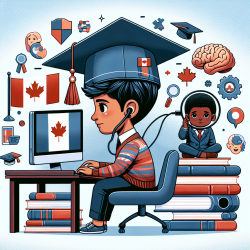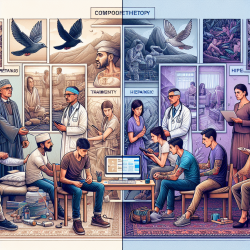As practitioners dedicated to creating optimal outcomes for children with intellectual disabilities (ID), it's crucial to stay informed about the latest research and evidence-based practices. A recent study titled Evaluating a Postsecondary Education Program for Students with Intellectual Disabilities: Leveraging the Parent Perspective provides valuable insights into how postsecondary education (PSE) programs can be enhanced by incorporating parental feedback. Here, we explore key findings and practical recommendations from this study to help practitioners improve their skills and encourage further research.
Key Findings from the Study
The study conducted a thematic analysis of 58 interviews with parents whose children were enrolled in a PSE program at a large public university. The analysis was guided by the COM-B model, which focuses on three main constructs: Capability, Opportunity, and Motivation, and how these influence Behavior. Here are some of the key themes identified:
- Capability: Psychological and physical enablement through academic mentors, faculty support, and non-academic components like social events. Training and education in independent living, employment, and academic skills were crucial.
- Opportunity: Parental involvement and expectations significantly shaped student experiences. Campus and community engagement provided a conducive environment for growth.
- Motivation: Reflective education through goal-setting meetings and automatic enablement by peers and neurotypical students on campus were pivotal in motivating students.
- Behavior: Improvements in independent living skills, academic achievement, and socialization were observed.
Practical Recommendations for Practitioners
Based on the study's findings, here are some practical recommendations for practitioners working with children with ID:
- Incorporate Parental Feedback: Regularly gather and integrate parental perspectives to continuously improve PSE programs. Parents provide unique insights into their child's progress and areas needing improvement.
- Enhance Independent Living Skills: Offer workshops on money management, cooking, and transportation. Use hands-on, visual learning methods to reinforce these skills effectively.
- Foster Academic and Employment Skills: Provide access to technology like iPads for completing coursework and offer diverse internship opportunities aligned with student interests.
- Encourage Socialization: Increase the number of planned social activities and integrate students with neurotypical peers to enhance social skills and confidence.
- Promote Reflective Education: Implement goal-setting meetings to help students visualize their goals and stay focused on achieving them.
Encouraging Further Research
While this study provides valuable insights, further research is needed to explore the long-term impact of PSE programs on students with ID. Practitioners are encouraged to participate in and contribute to ongoing research efforts to enhance the quality of these programs.
To read the original research paper, please follow this link: Evaluating a Postsecondary Education Program for Students with Intellectual Disabilities: Leveraging the Parent Perspective.










